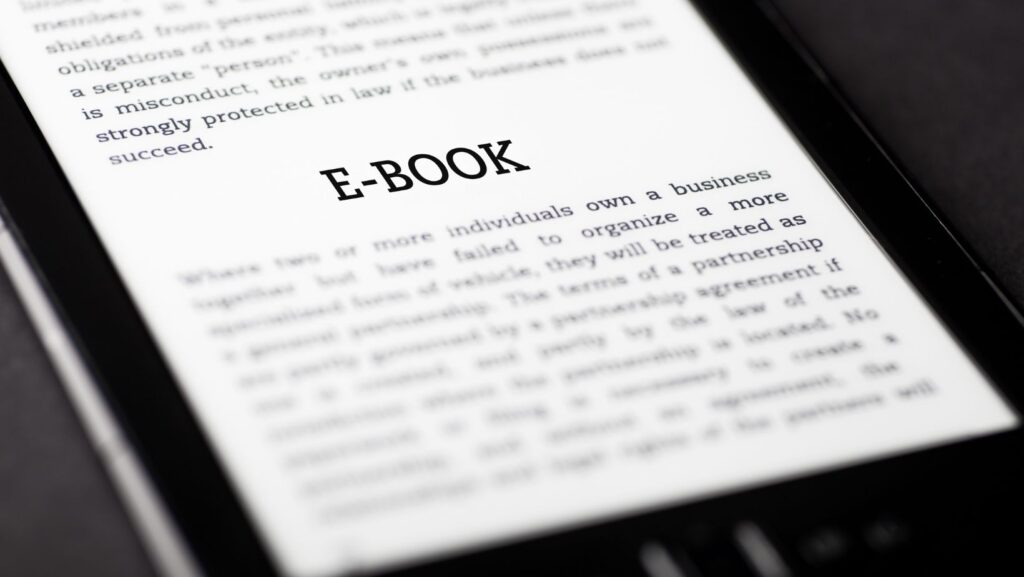Enrolling ebooks in Amazon’s KDP Select program is a popular choice among authors. However, authors should be aware that Amazon has the authority to penalize them if they violate the exclusivity agreement by having ebook piracy available.
When authors choose to enrol in KDP Select, their ebooks piracy become eligible for inclusion in Kindle Unlimited (KU), which provides additional marketing opportunities. It’s important to note that ebook exclusivity only applies to books enrolled in KDP Select, not the standard Kindle Direct Publishing (KDP) platform.
Amazon has strict rules regarding exclusivity, and if they discover an enrolled ebook being sold or distributed for free on any other platform or site, they reserve the right to impose severe penalties.
Table of Contents
Understanding eBook Piracy
EBook piracy refers to the unauthorized copying, distribution, or sharing of digital books without the author’s or publisher’s consent. It poses a significant challenge to the publishing industry, impacting authors’ revenue and diminishing their ability to earn a fair return on their literary endeavors. The ease of digital sharing platforms and the accessibility of pirated content have made combating this issue an ongoing battle for authors and platforms alike.
Does Amazon penalize for ebook piracy?

It can be assumed that authors who self-publish on Amazon are familiar with the rules and comply with the exclusivity requirements for KDP Select. As Amazon offers an excellent platform for publishing and selling their work, authors have a vested interest in adhering to these rules.
However, the situation becomes more complicated when ebook pirates unlawfully copy and distribute an author’s book on file-sharing sites or alternative platforms. Amazon’s exclusivity terms are not entirely clear regarding piracy-related issues.
According to Amazon’s terms, authors cannot grant anyone else the right to sell or distribute their ebook (or a substantially similar book).
In digital format in any territory where they hold rights. One might interpret this clause to mean that authors are protected if they do not consent to their book being pirated. However, this is not the case for all authors.
Numerous authors have encountered difficulties when Amazon threatened to penalize them due to piracy, resulting in the removal of ebooks from Kindle Unlimited and, in some cases, the suspension of their KDP publishing accounts.
Amazon has implemented various measures to safeguard authors’ intellectual property and combat piracy. However, these efforts have occasionally led to authors being penalized.
Instances of authors facing penalties from Amazon are not new. Many authors have shared their unfortunate experiences dealing with Amazon’s actions when it comes to pirated copies of their ebooks.
The penalties imposed by Amazon can be severe and have far-reaching consequences. For example, if Amazon detects that an author’s book has been pirated and made available on a file-sharing site, they may remove the book from the Kindle store and even ban the author from publishing on KDP altogether. Such repercussions can be devastating for authors who rely on KDP as their primary source of income.
Reports of penalized Authors by Amazon.
Organizations like ALLi have previously warned about the negative impact of piracy on ebook authors on Amazon. Reddit’s discussions also highlight the helplessness authors may feel, as they are at the mercy of Amazon’s decisions.
While it is understandable and necessary for Amazon to combat piracy, the penalties they impose on authors can be perplexing. Some penalties may seem unjust, particularly when authors are held accountable for issues beyond their control, such as piracy committed by third parties.
These penalties can be especially devastating for independent authors, who may lack the resources or legal expertise to challenge Amazon’s decisions.
How Amazon determines the action?
Amazon relies on an automated process to make decisions. Using algorithms and bots, Amazon scans the Internet extensively to identify potential violations of its exclusivity requirements.
The vast number of ebooks in the Kindle store does not hinder the process. Amazon’s bots can search through millions of locations daily to identify duplicate ebooks.
To detect a match, the bots look for identical titles, similar book descriptions and covers, and identical text within the first 300 to 500 words. Once a potential match is found, automation takes over, and Amazon KDP sends a threatening email to the author.
In most cases, authors are unaware of why or how their ebook violated Amazon’s KDP Select exclusivity. One common cause is when authors enrol in KDP Select after publishing their books on other platforms, as it takes time for all retailers to remove the ebook after deletion from platforms like Draft2Digital or Smashwords.
However, if this is not the reason and the author has followed all the rules, ebook piracy may be the cause.
Options for Authors
Given the millions of ebooks on Kindle Unlimited, most authors who comply with KDP Select rules do not encounter issues. However, there are rare cases where Amazon penalizes authors despite their innocence.
If this happens, the only recourse is to contact Amazon KDP and seek assistance. Persistence is key, as initial responses from Amazon may be generic.
If no progress is made, authors can attempt to contact Amazon by phone, as some have achieved successful outcomes by personally presenting their case.
Signing a petition on change.org to prevent the unfair removal of titles on Amazon can also be a preventive measure.
Can ebook piracy preventable ?

Unfortunately, it is not possible to stop pirates from copying your ebook. EBooks, like any other electronic file, can be easily duplicated and shared. While Amazon employs Digital Rights Management (DRM) to safeguard Kindle ebooks, pirates can easily remove this protection.
Practically every book published has experienced some form of piracy. While authors can attempt to combat book pirates, it is an uphill battle, as stopping one instance does not eliminate the many others that exist.
Summary
EBook piracy poses a challenge for self-publishing authors and the publishing industry as a whole. However, the majority of independent authors rarely encounter piracy issues with their ebooks on Amazon. That being said, there have been reported cases, particularly affecting popular romance titles. It is hoped that Amazon will develop more effective and equitable methods to combat piracy and provide better protection for its authors.
While eBook piracy remains a persistent challenge, Amazon demonstrates a commitment to combatting this issue and protecting authors’ rights. Authors can find solace in Amazon’s anti-piracy measures, including the ability to report copyright infringements. However, safeguarding their works against piracy should also be a priority for authors.
By implementing DRM, monitoring distribution channels, and building a strong author brand, authors can fortify their defense against eBook piracy and foster a thriving and secure publishing journey on the Amazon platform. Together, authors and platforms can work hand in hand to create an environment that upholds intellectual property rights and supports the literary community’s growth and sustainability.

